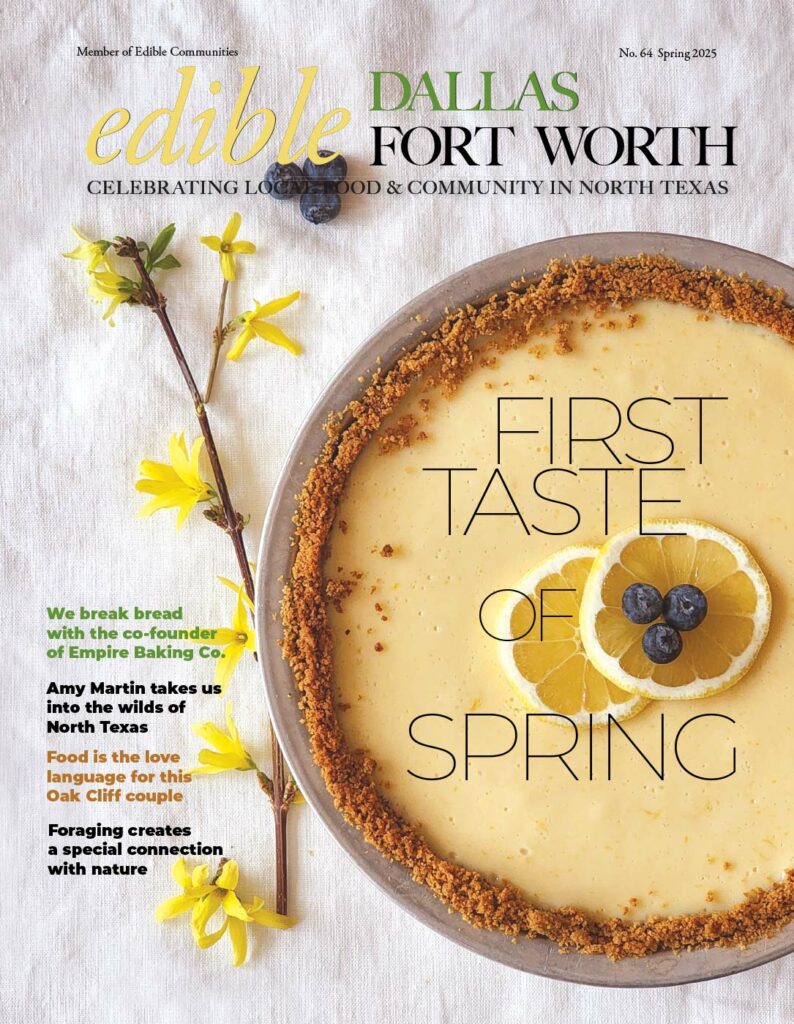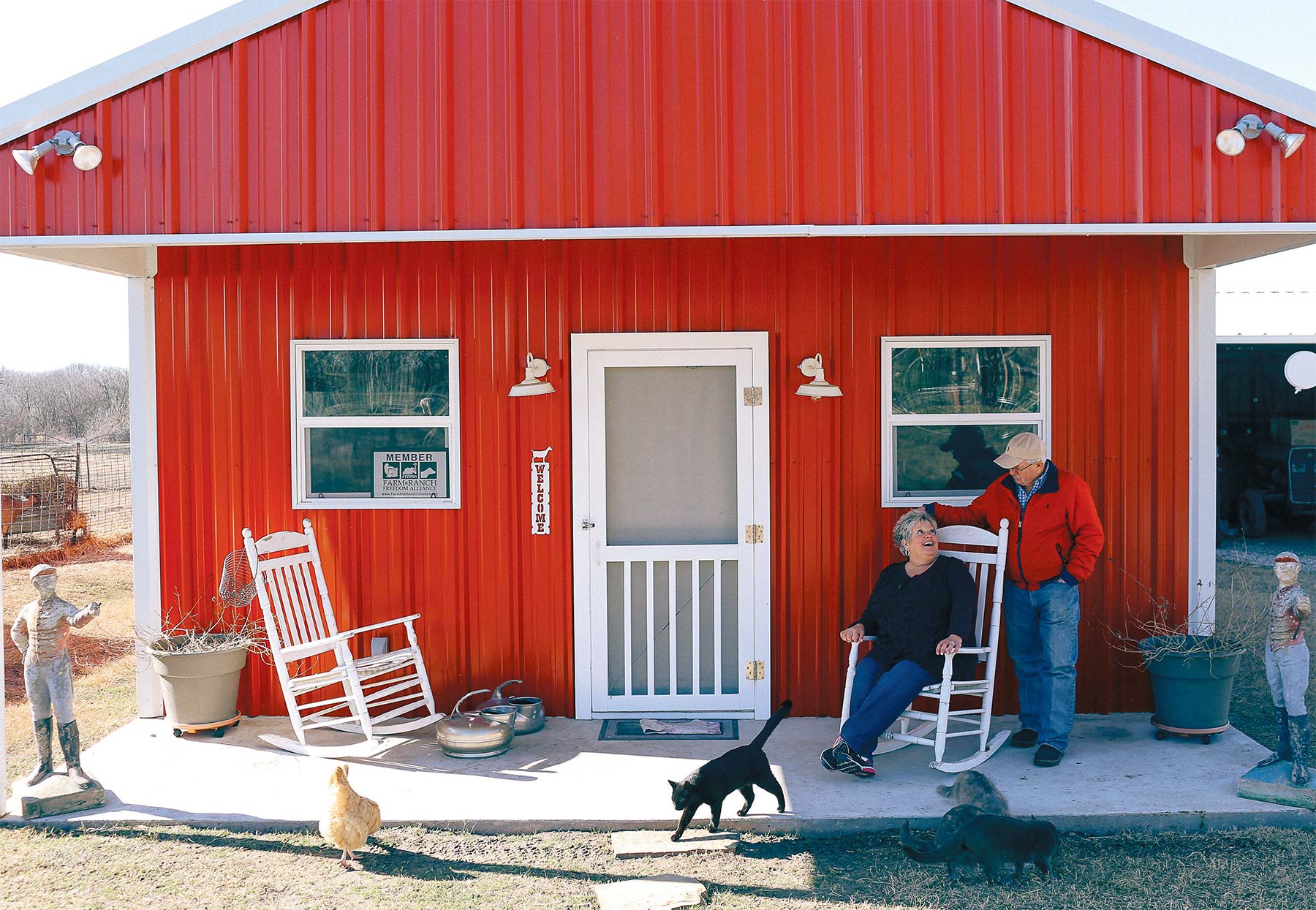
Over the river and through the woods to Grandmother’s house we go….
I’m seated in Lyn Horton’s farmhouse kitchen with two chilled glasses of raw milk in front of me. The only thing missing is a piece of chocolate cake.
“Which one is cow’s milk, and which is goat?” asks the dairy farmer, who mischievously challenges me to a taste test. With a wink, she turns the milk jugs so I can’t cheat.
Lyn and husband Steve are co-owners of N&P Farm and Dairy in Farmersville, a rural Collin County community not far from burgeoning McKinney. The “river” I crossed to get here is a finger of Lake Lavon and, rather than “woods,” the surrounding landscape is mostly open pasture with a few stands of shade trees. Suburbia is creeping closer, but the farm still has plenty of bucolic charm.
Suburbia is creeping closer, but the farm still has
plenty of bucolic charm.
N&P stands for Nana and Pop, and though Steve and Lyn don’t have grandchildren, they’ve earned their monikers from their college-age godson, Kelton, their goddaughter Karlie and her children, Klayden and Kenver, as well as from the many youngsters who visit their dairy.
The couple’s farm abounds with affable animals: 50 goats— Saanens, Alpines and Lamanchas—and six Jersey and Guernsey cows, plus two bulls and 200 laying hens.
As we tour the barnyard, Sunshine, an Alpine, hurries toward Lyn to greet her. This 2-year-old, their farm’s first-born goat, just gave birth this winter to a baby girl named Hazel. “Goats have personalities, just like people,” Lyn says as Sunshine nuzzles her.
Around the yard, there are cats lolling in the sun and chickens scratching for worms. A Great Pyrenees named George and an Anatolian named Gimley watch over the grounds, while Abbie Lou and Earl Lee, Catahoulas, and Sophie Sue, a Schnauzer, round-out the welcoming committee.
Topping the cuteness scale are two unusual piglets, Thelma and Louise, recent additions to the brood. The girls are Hungarian Mangalitsas, a hairy breed that looks like a cross between a pig and a wire-haired terrier. “The Kobe of the pork world,” says Steve. Tasty as they might be, these two will only be used as breeding stock.
Also impressive is N&P’s garden, admired by local chefs like Robert Lyford, Graham Dodds and Matt McCallister. Each winter, Lyn pores over the The Whole Seed Catalog from Baker Creek Heirloom Seeds, choosing uncommon varieties like miniature Vates collards and Crapaudine beets. “I love the funky stuff with a history,” she says. For transplants, they head to North Haven Gardens. “They have so many good things. Whatever they have, I know it will grow here.”
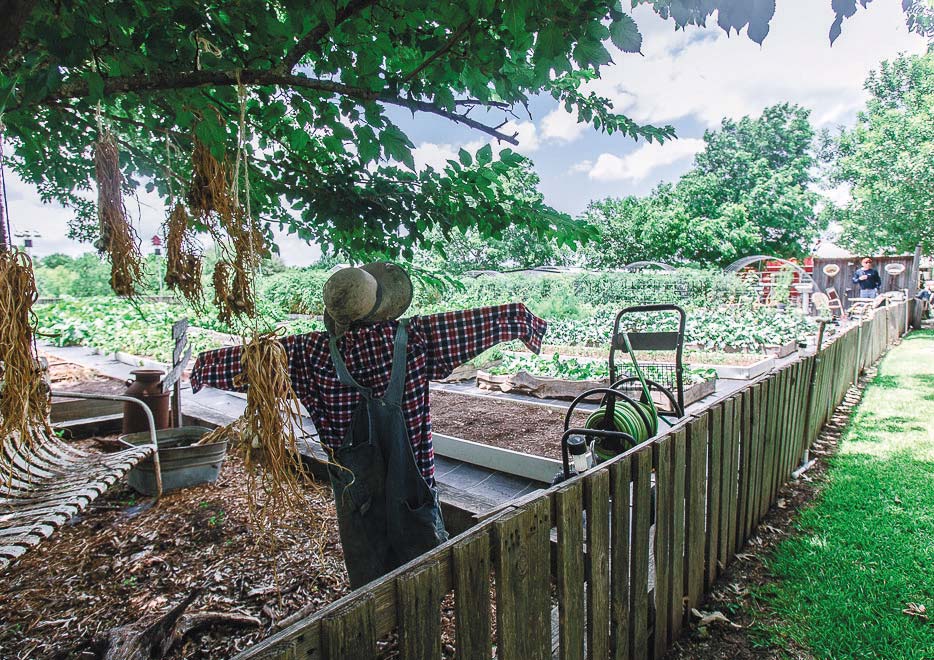
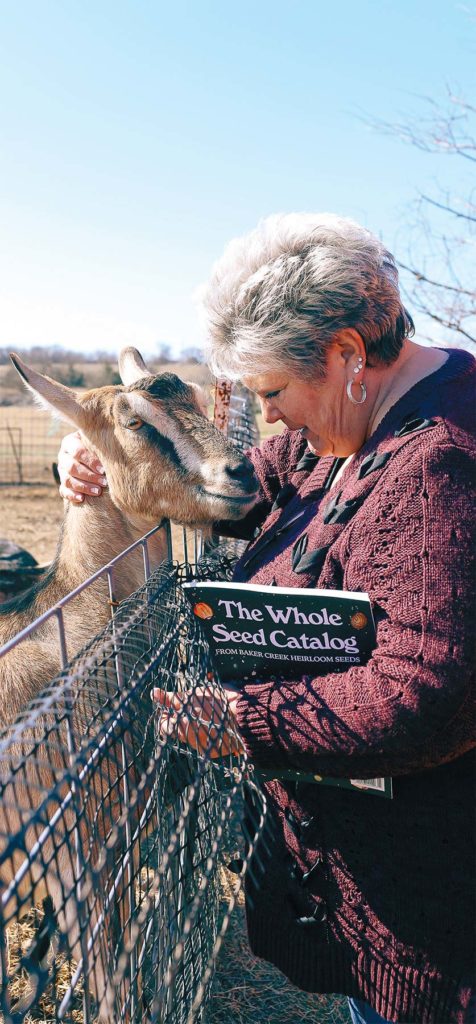
“Everything she touches grows well,” whispers Steve. “She’s got the greenest thumb I’ve ever seen.”
Every Wednesday and Saturday, the Hortons set up an outdoor mini-market at the edge of their circular drive where they sell milk—both cow and goat—as well as kefir, yogurt and buttermilk. Today, there are jars of cajeta, a creamy Mexican caramel sauce made with their goat milk, and crème fraiche. “A li’l touch of France in Farmersville,” Lyn laughs.
In season, they offer eggs, vegetables, honey collected from their hives, homemade jams, soaps and creams, and meat from local purveyors—pastured chicken from Windy Meadows Family Farm and Keeton Ranch-Fed Beef. An enclosed farm store should be ready sometime this summer.
Customers, most with kids in tow, come from all over North Texas, and on the day I visit, there’s a good deal of friendly family talk. “They’re my peeps,” says Lyn.
Katie Ballard of Lucas has been a Wednesday regular for nearly two years. For her home-schooled children, ages 6, 9 and 10, the farm provides a great outing.
She was skeptical about raw milk when she first considered the prospect, but after doing research, she says she’s convinced of its nutritional benefits. Her husband found N&P on Facebook. She emphasizes how important it is for the consumer to know their farmer.
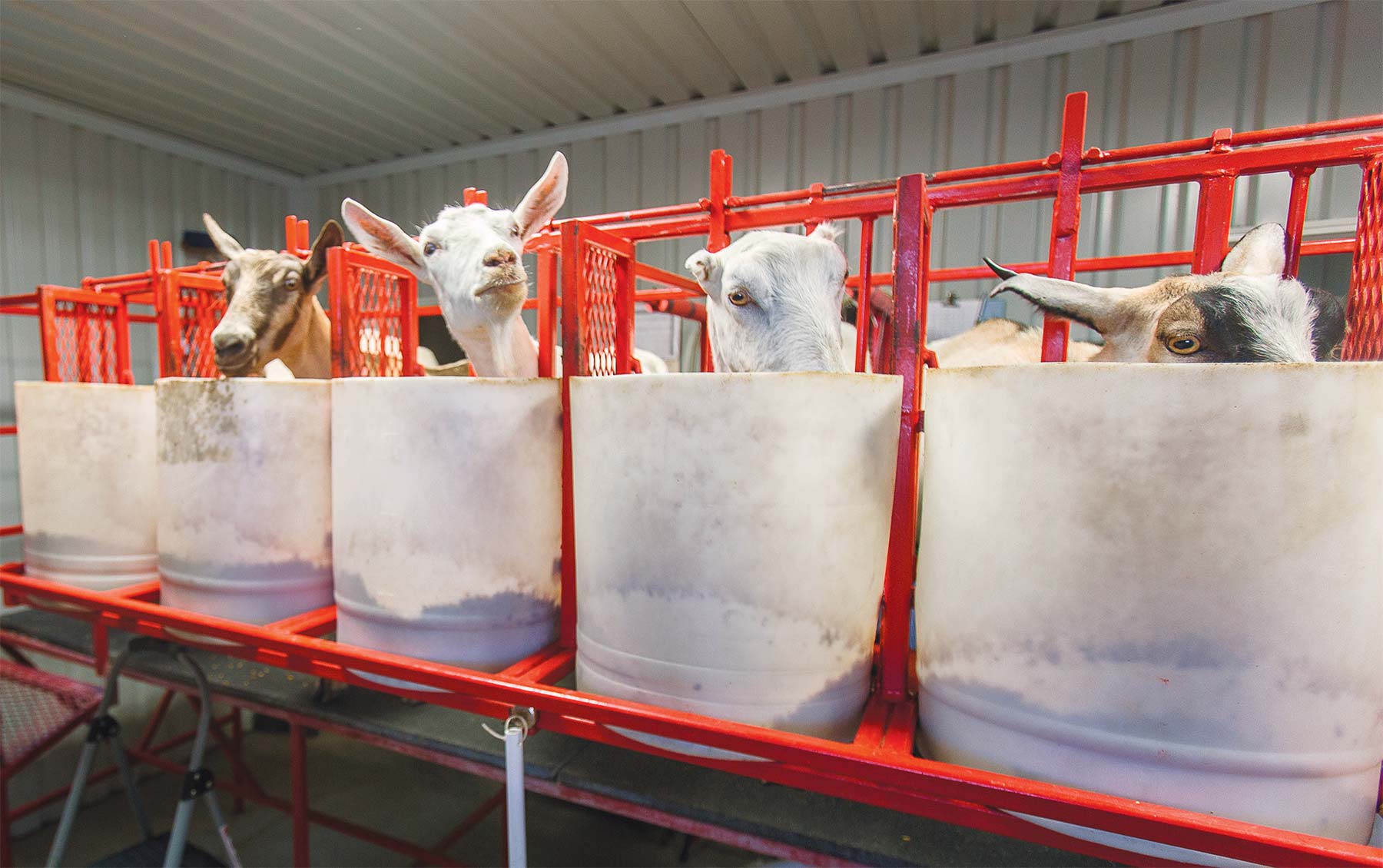
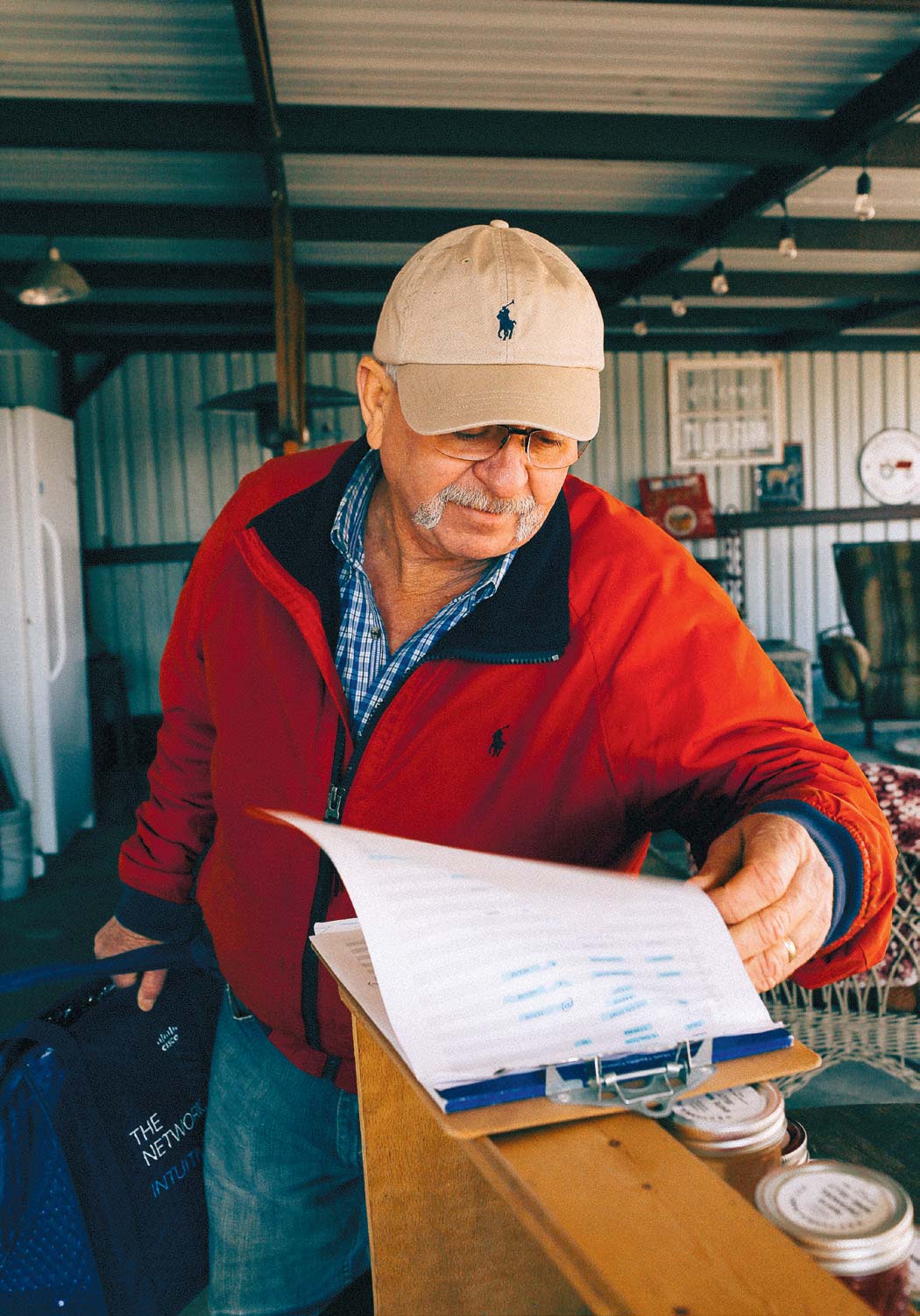
“I grew up around cows,” says Katie, “and know if they’re nourished and treated well.” The Hortons encouraged her family to tour the farm. “It was very obvious how much they loved and took pride in their animals.”
Steve, who grew up on the property, spent 29 years with the McKinney Fire Department, before “retiring” to become a farmer in June 2015. The couple dipped their feet into the retail market even before his retirement, selling their eggs, jams and honey at the Historic McKinney Farmers Market.
For 20 years, Lyn had dreamed of owning a full-fledged dairy, but postponed the endeavor because of her commitment to care for her godson. When Kelton entered high school, the Hortons agreed the time was right. By December 2015, plans for their expanded barn had been okayed by the state and the land was cleared. But just when construction was set to begin, Mother Nature had other plans.
December 26, 2015, was an abnormally warm day. In shorts and t-shirts, Lyn and Steve had finished their chores and put up their three cows, 13 goats and 150 hens when the phone rang. “Are y’all watching the weather?” asked a friend. Twelve tornadoes were ripping through North Texas, and Farmersville was in their monstrous path.
The couple jumped into their truck and headed to Lyn’s sister and brother-in-law’s house where the group hunkered down in their storm cellar.
“When we first got in, we were joking and carrying on,” says Lyn. Steve kept peeking out until finally an eerie quiet convinced him to latch the door. “We could hear things hitting, and our ears were popping.” It was over in 30 seconds.
Steve emerged first and looked out into the darkness. “I think it’s all gone,” he said. Where Lyn’s sister’s house had stood minutes earlier, there was only rubble. Two barns had vanished, along with the trucks and a tractor. Their gooseneck trailer was in a wad.
Across the field, Lyn and Steve’s home was still standing, but a swath of the roof and the front porch had blown away, along with a hen house with 60 hens, a tractor shed and a hot tub. The cows and the goats were shaken up, but they survived. So did most of the chickens.
Bizarrely, they were able to retrieve two pieces of family memorabilia through Facebook. A framed photo of her uncle, once hanging on her sister’s wall, was salvaged from an Oklahoma pasture with only one small tear. The same with an old postcard from their grandparents found 80 miles away without a drop of water damage.
The Hortons seem to take it all in stride. “Our first cow calved four days after the storm,” says Lyn. “That beautiful baby girl, Buttercup, is a dairy girl now, being milked every day like her Momma.” N&P Dairy finally became operational in October 2016.
“This is pretty close to the best area in the world, if you want to be part of the food movement,” says Steve, referring to Collin County’s tight-knit farm-to-table community and the growing interest in non-industrialized food. “Our timing for doing this was fantastic. The demand for raw milk is crazy right now.”
I admit to Lyn and Steve that it’s been years since I’ve tasted raw milk—cow or goat. My sluggard taste buds have grown accustomed to pasteurized, non-fat cow’s milk and occasionally, goat yogurt. I like the tang of goat cheese, but I wouldn’t want my milk to taste that way. And that’s when Lyn suggests a taste test.
Tilting up the first chilled glass, I let the rich white liquid coat my tongue. As it hits the back of my throat and drizzles down, I note a flavor that’s pleasantly sweet and clean. “Cow’s milk,” I tell her assuredly. Lyn smiles.
I pick up the second glass and take a swallow. This liquid is even creamier and also sweet and mild. Now I’m confused. I try again, but still have no clue. This is harder than I thought. “I give up.”
“Don’t feel bad,” Lyn says. “Even I can’t tell the difference when I’m drinking one or the other alongside a piece of chocolate cake.”
She instructs me to hold each glass to the light, and that’s when I notice a variance in their whiteness. The milk in the first glass is slightly blue-tinged—goat. The second is more golden—cow. Lyn points out the separation line in the jug of cow’s milk— where the cream has risen to the top. Goat milk, with its smaller protein molecules, doesn’t separate.
It’s the goat’s milk that’s surprised me. There’s absolutely none of the gaminess I’d expected. They both taste decadently delicious like—REAL milk.
Now if only Nana and Pop would bring me that piece of chocolate cake.
Facebook: N&P Farm and Dairy
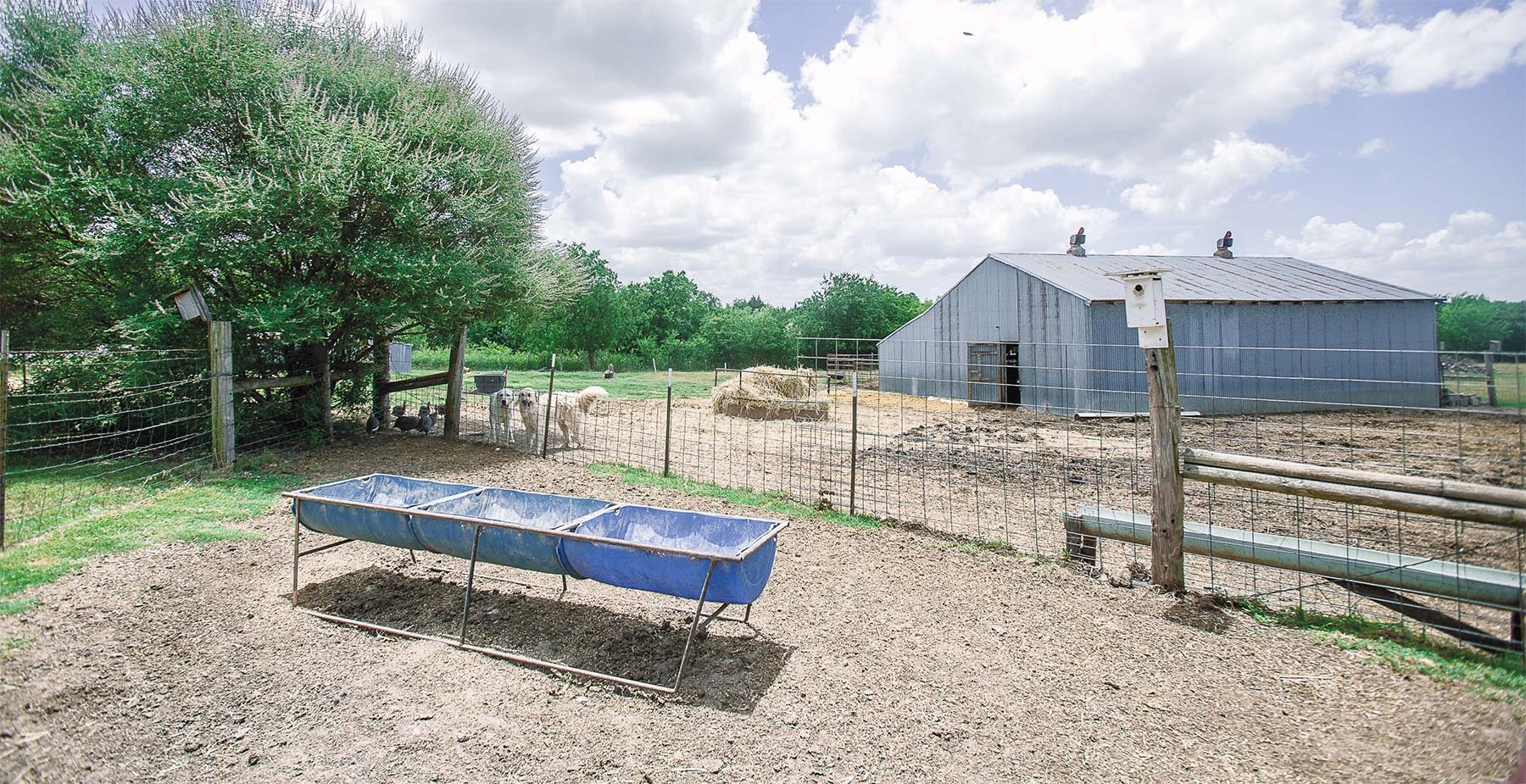
As a kid, TERRI TAYLOR refused to eat her vegetables. Her veggie-phobia was cured in 1977 when she spent eight months working on farms in Norway and France. She studied journalism at UT-Austin and received a master’s degree in liberal arts from SMU. Her short story “Virginia” can be found in Solamente en San Miguel, an anthology celebrating the magical Mexican town of San Miguel de Allende. She has written for Edible DFW since its inaugural issue in 2009. She became the magazine’s editor in 2010 and is the editor of Edible Dallas & Fort Worth: The Cookbook.
- Terri Taylorhttps://www.edibledfw.com/author/ttaylor/
- Terri Taylorhttps://www.edibledfw.com/author/ttaylor/
- Terri Taylorhttps://www.edibledfw.com/author/ttaylor/
- Terri Taylorhttps://www.edibledfw.com/author/ttaylor/


